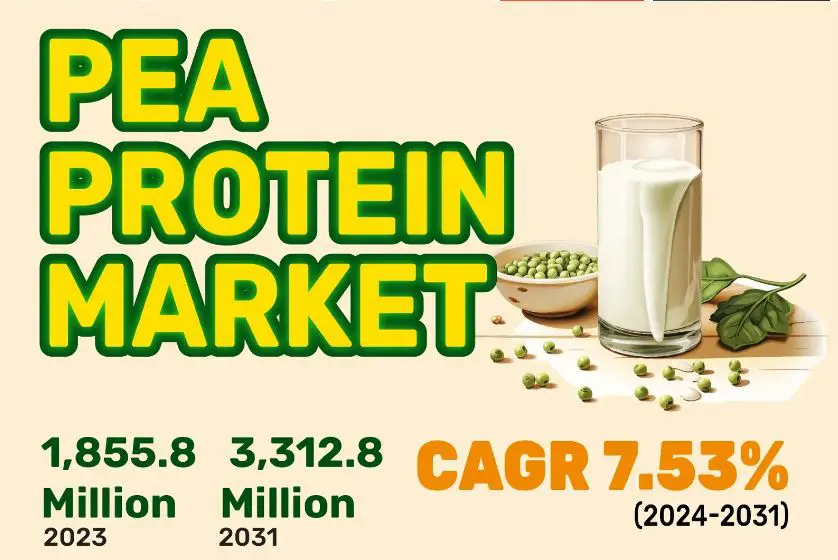The global Pea Protein Market Size was valued at USD 202.40 billion in 2023 and is projected to reach USD 3,312.8 Million by 2031, growing at a CAGR of 7.53% from 2024 to 2031.
Pea Protein Market Top 10 Companies: –
- Cargill Inc
- ETprotein
- Foodchem International Corp
- Ingredion
- Nature Bio-Foods Ltd
- Nutri-Pea
- Roquette Frères
- Sun Nutrafoods
- Taj Agro International (Taj Pharma Group)
- The Scoular Company
Browse Full Information “ Pea Protein Market” Covering TOC & Regional Overview @ https://www.kingsresearch.com/pea-protein-market-687
Fastest Growing Region (2024 – 2031) – Asia Pacific
In the realm of food innovation and sustainability, the rise of plant-based proteins has been nothing short of revolutionary. Among them, pea protein has emerged as a frontrunner, capturing the attention of consumers and industry players alike.
Pea Protein Market Growth Factors: –
- Health and Wellness Trends: With an increasing focus on health-conscious consumption patterns, consumers are seeking out protein-rich foods to support their active lifestyles. Pea protein, with its high protein content and plant-based origin, aligns perfectly with this trend.
- Sustainability Concerns: The environmental impact of traditional animal agriculture has led many consumers to opt for plant-based alternatives. Pea protein production requires less water and generates fewer greenhouse gas emissions compared to animal-based protein sources, making it a sustainable choice.
- Vegan and Vegetarian Diets: The growing adoption of vegan and vegetarian diets, driven by ethical, environmental, and health considerations, has expanded the market for plant-based proteins like pea protein.
Regional Analysis: –
In 2023, North America took the lead in the pea protein market, reaching a valuation of USD 608.7 million. This dominance can be attributed to various factors, including a strong emphasis on health and wellness, which fuels the demand for plant-based proteins like pea and soy in the region.





